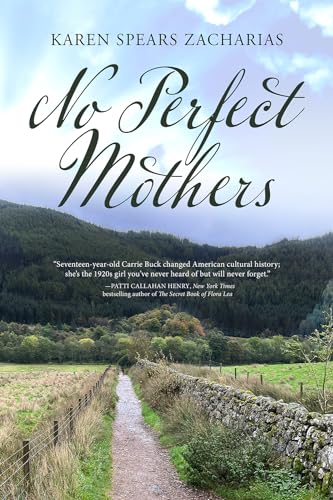No Perfect Mothers
Carrie Buck has not lived an easy life. Taken from her mother at a young age, she grows up amid neglect and abuse at the hands of foster parents, J. T. and Alice Dobbs. They label quiet Carrie as “stupid” and tell her from a young age that she’ll end up like her no-good mother. When Carrie is seventeen, she is assaulted by the Dobbses’ nephew. Fearful of the truth getting out and tarnishing their family’s reputation, they blame Carrie for the assault and resulting pregnancy. The Dobbses have her declared morally and mentally deficient by a judge and committed to the Virginia Colony for Epileptics and Feebleminded. Once at the colony, Carrie becomes the center of a court case, as those in charge argue for the right to sterilize her and prevent another generation of “deficients.”
No Perfect Mothers tells the story behind the notorious Buck v. Bell Supreme Court case (1927), which codified forced sterilization in the United States and gave legal validity to the eugenics movement. Zacharias does a nice job of revealing the real, human story behind the law. The difficulty with writing a novel centering on a real person and real historical events is that you are bound to the historical story, for better or for worse. Carrie Buck’s life was one of unyielding hardship, exploitation, and disappointment. As interesting as the history is, her story does not make for a satisfying character arc, and I found myself wishing for a different trajectory for her. The history of the eugenics movement and the consequences of the Buck v. Bell case are important and rich topics for historical fiction, but unfortunately not every historical figure makes for a compelling protagonist.










